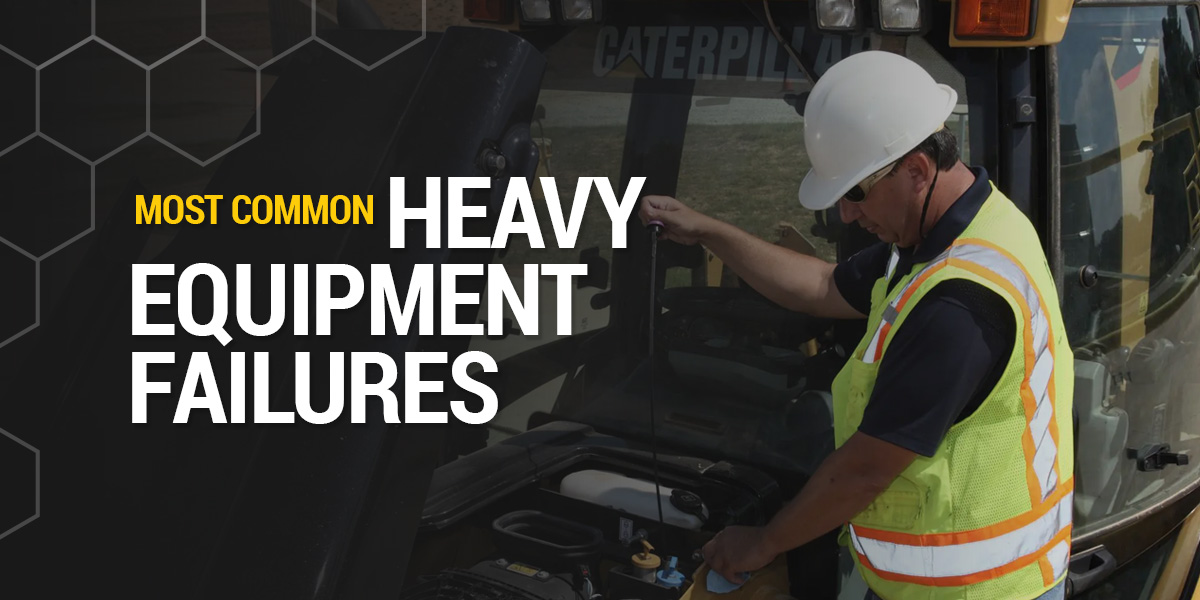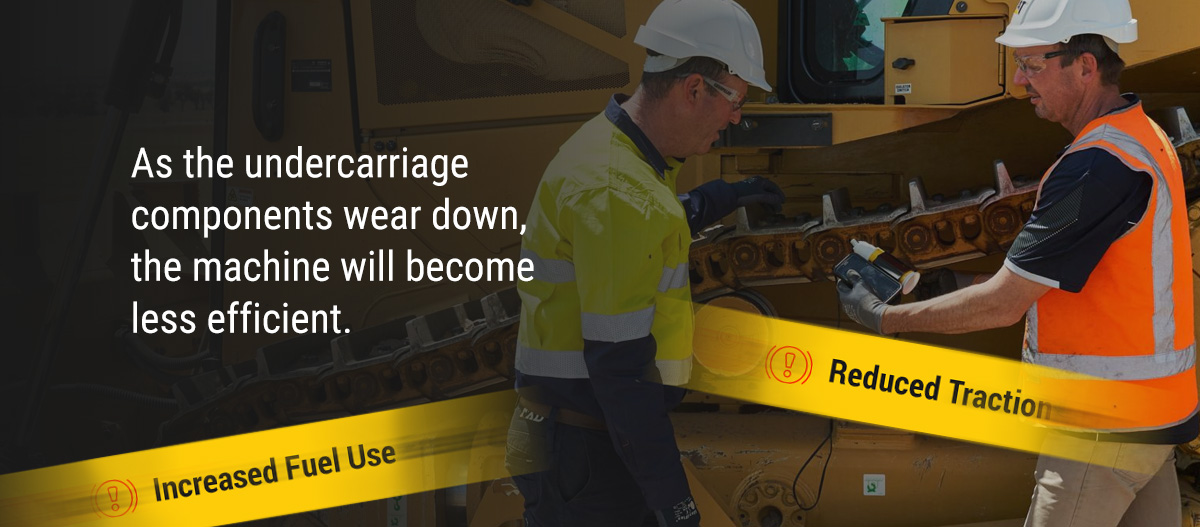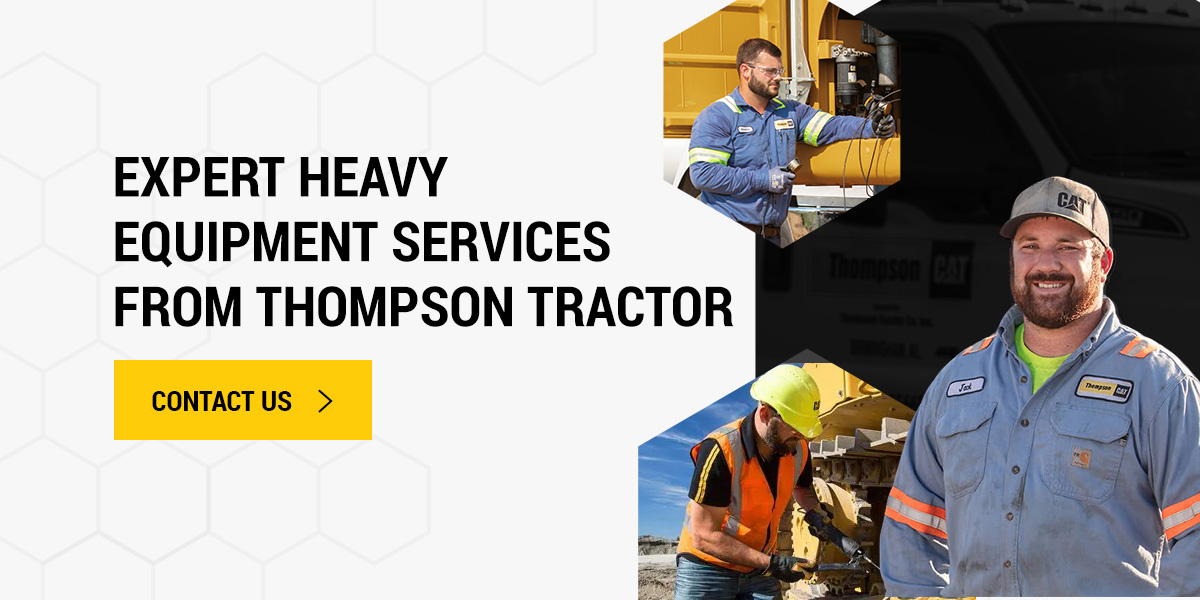
Heavy equipment is a significant investment, and you depend on your machines to get work done quickly and correctly. When it fails, you’re often stuck with expensive downtime, pushing upcoming projects back. Getting your equipment back up and running is essential for maximizing your operation’s efficiency, safety, and bottom line.
Construction equipment often fails due to poor maintenance. With so many deadlines and projects to juggle, it’s easy to overlook equipment upkeep. However, regular care is critical for preventing equipment failures and reduced productivity.
Maintaining your machines keeps them reliable and safe, protecting your bottom line. When equipment failures happen, you need to be ready. Understanding common reasons for malfunctions and issues ensures you can respond quickly to prevent issues from worsening or happening again.
1. Hydraulic Leaks
Hydraulic leaks are a common reason your heavy equipment fails. These leaks happen when the machine’s hydraulic fluid escapes the system. It might drip inside the machine or externally, creating performance issues and failures.
Hydraulic leaks often come from damaged hoses, loose fittings, and worn seals. Heat, pressure, harsh conditions, and poor maintenance can worsen this problem.
Over time, wear can also strain the system, creating significant performance issues. When components crack, wear, and fail, it leads to system leaks. The leak will lead to poor machine efficiency and eventual heavy equipment failures.
Preventing Hydraulic Leaks
You can work to prevent hydraulic leaks with regular inspections. The earlier you spot and correct an issue, the less damage you’ll need to repair. Check any seals and hoses for signs of excessive wear. Look for issues like bulges, visible cracks, and leaks around fittings.
You’ll also need to stay on top of maintenance. Follow the manufacturer’s recommendations for fluid levels and replacement. Additionally, swap out worn seals and damaged components before they fail — keeping everything in good condition will prevent leaks from springing up.
2. Electrical Failures
Electrical failures can also happen with heavy equipment. Over time, dirt, moisture, and debris can work into your equipment. They’ll cause corrosion and wear, impacting the electrical system. All this wear can lead to electrical issues from:
- Corroded connections.
- Faulty wiring.
- Weak batteries.
- Short circuits.
Electrical problems will lead to performance and safety issues with your machines. You could see issues with ignition systems, control panels, or lights. You might have an electrical problem if you see the following:
- Slow engine starts
- Equipment shutdown
- Flickering lights
- Periodic power loss
These issues usually mean there’s a deeper problem that needs attention.
Solutions to Electrical Failures
Remember that electrical issues can be dangerous. You should only perform visual inspections for this system, especially if you’re inexperienced. If you think you’re dealing with one of these problems, try these tips:
- Inspect battery connections for loose or corroded terminals.
- Check fuses and relays for obvious issues.
- Look for visibly damaged wiring that requires repair or replacement.
While you can perform basic checks on your own, electrical systems are complex and dangerous. Always call in a professional who can safely handle these electrical issues, protecting you and your equipment.
3. Undercarriage Wear
The undercarriage is essential for keeping heavy equipment in top condition. As your machine moves through rough conditions, it can take on damage. You’ll also see more undercarriage issues if you’re traveling excessively. Additionally, overloading equipment or using it on abrasive jobsites can lead to early deterioration.
As the undercarriage components wear down, the machine will become less efficient. You might start to see increased fuel use and reduced traction. The longer the problem goes on, the more extensive the damage will be. Eventually, you will likely experience mechanical failure.
Maintenance Tips for Undercarriages
Minimizing undercarriage wear means being more careful with heavy equipment operation. Keep your undercarriage in good condition with these tips:
- Stay on even surfaces whenever possible.
- Avoid overloading the machine.
- Regularly clean dirt and debris from the equipment.
- Look for wear patterns on the tracks.
- Promptly replace worn parts.
4. Fuel System Issues
You might also see fuel system issues with your heavy equipment. During work, dirt, debris, and contaminants can build up in the fuel filters. They’ll cause improper combustion, creating fuel system issues. Any work fuel pumps or leaky lines will also prevent the engine from getting fuel. These problems can create cause equipment failures.
Look for these symptoms to see if you have fuel system concerns:
- Rough idling
- Engine misfires
- Start trouble
- Higher fuel consumption
Problems with the fuel system will drastically affect your equipment’s performance. You’ll get less work done while paying higher fuel costs.
Addressing Fuel System Issues
Regular maintenance is key to preventing fuel system failures. You need to check your system regularly to catch issues before they become severe. Follow these tips to protect your investment:
- Replace fuel filters regularly.
- Use manufacturer-recommended fuel.
- Check fuel lines for leaks and damage.
- Keep water and contaminants out of the fuel tank.
If you’re maintaining your system and still seeing issues, it’s time to call an expert. Professionals will perform complex upkeep, like cleaning fuel pumps or replacing fuel injectors. Fixing any issues early can extend the life of your equipment.
5. Brake System Failures
Brake system failures are another issue you might experience, and they pose a serious safety hazard to operators and workers on-site. You need to know what to look for to protect your team and equipment. Some brake issue warning signs include:
- Stiff or spongey brake pedals.
- Grinding or squeaking noises.
- Longer stopping distances.
Brake components will wear down due to heavy use, friction, and heat. Over time, ignoring these issues can lead to trouble. If you’re seeing braking complications, check the system for potential complications.
Maintaining a Reliable Brake System
Maintenance will help protect the brake system from issues. Stay on top of regular inspections to prevent problems from going unseen. Make sure operators are checking fluid levels often. Have them keep an eye out for leaks or air bubbles in the lines.
Additionally, keep any brake pads and rotors in good condition. Swap them out as they wear down to maintain good stopping power. With regular inspections and replacements, you’ll keep your brakes in peak shape and prevent accidents.
Expert Heavy Equipment Services From Thompson Tractor
Whether you’re dealing with equipment failure or you want an expert to inspect your fleet, partner with Thompson Tractor. Our Cat® preventive maintenance services ensure your equipment is working at its best.
With unmatched in-shop repair work and field services for your machines, we can help you on your schedule. If you’re in Alabama or the Florida Panhandle, we’re here to provide you with comprehensive heavy equipment services.
Contact us to learn how we can support your fleet quality and maintenance today.



